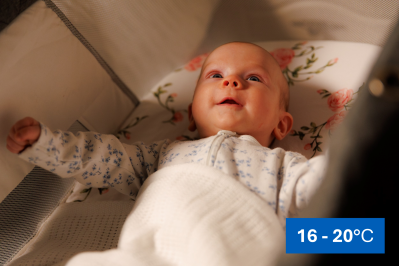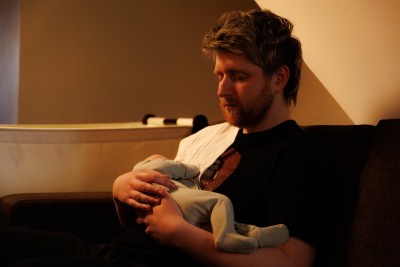
Maternity & Neonatal Voices in Partnership (MNVP)
Young babies need a lot of sleep during the first few months of their life. This page brings together information and support to help you to follow safe sleep advice for babies. Whether you're just starting out or need a refresher, everything you need is in one place.


Becoming a parent and caring for a newborn is a special and rewarding experience. It can also be a challenging time, especially when you're tired and your baby is waking frequently throughout the night. It's normal for your baby to feed during the night. Although it might be overwhelming, it can be a peaceful time to bond with your baby.
The safest place for your new baby to sleep is in their own sleep space, in the same room as you. Always place your baby on their back on a flat, firm surface, in a clear cot or sleep space. This will help to reduce the risk of sudden infant death syndrome (SIDS). Keep baby in the same room as you for at least the first 6 months. If you are thinking about sharing a bed with your baby it is important that you read information on how to co-sleep in the safest way.
Some parents choose to share a bed with their baby to help feed, comfort and encourage a close bond. This is also known as co-sleeping. If you are thinking of sharing a bed we recommended you read all the information to help you make a decision that is best for you and your baby.
Remember, never sleep with your baby on a sofa or armchair. This is not a safe sleep space for you and your baby.
Breastfeeding reduces the chance of Sudden Infant Death Syndrome (SIDS) occurring. It's common to feel like falling asleep whilst breastfeeding. If this is the case, you should prepare your bed according to the guidance on co-sleeping. Never fall asleep with your baby on a sofa or armchair. There are lots of products available to buy which claim to help your baby sleep. But, you do not need to buy lots of expensive items to ensure your baby is sleeping safely.